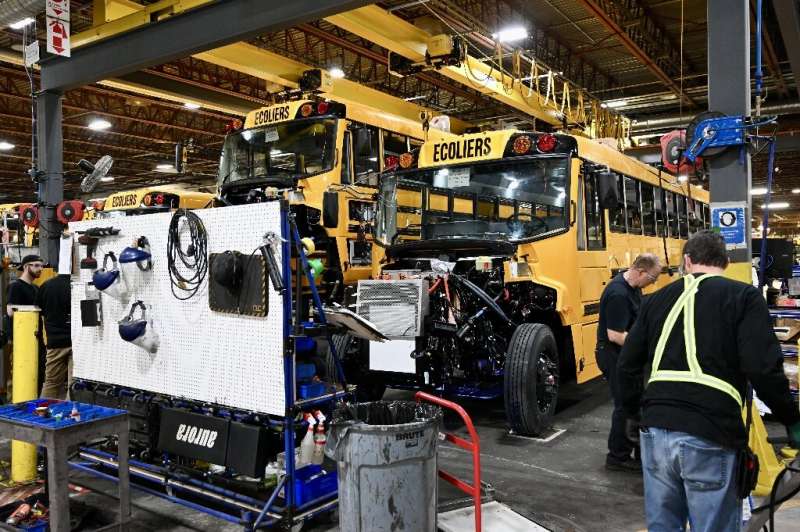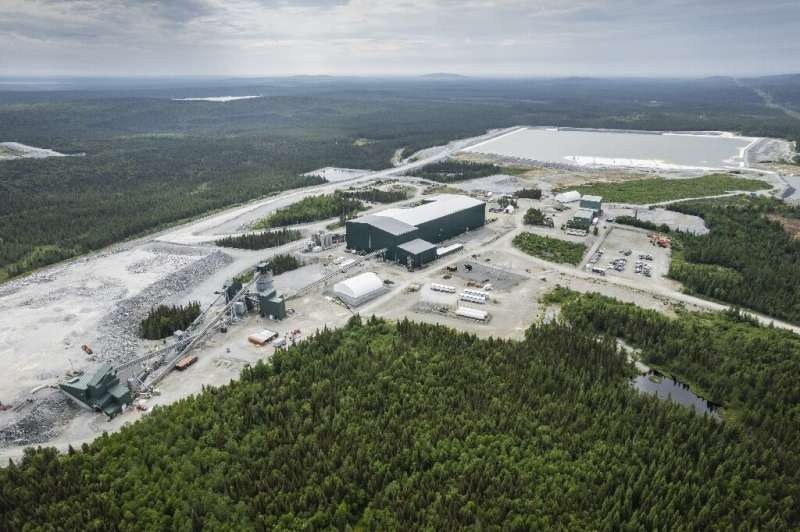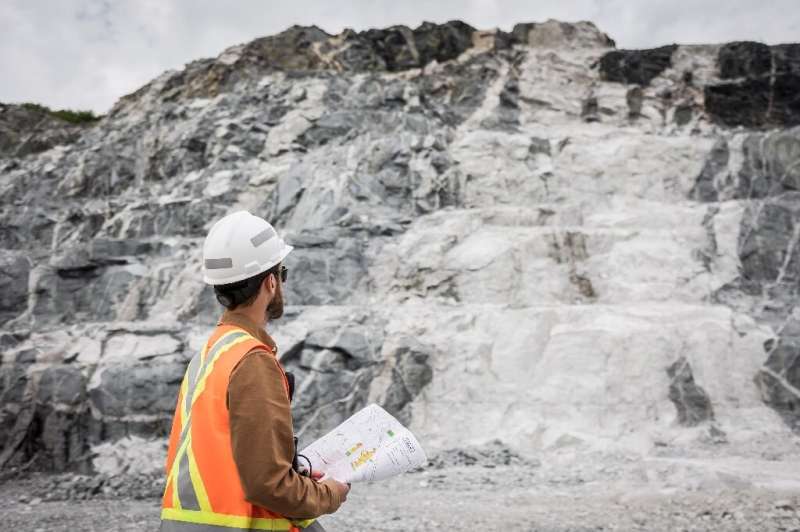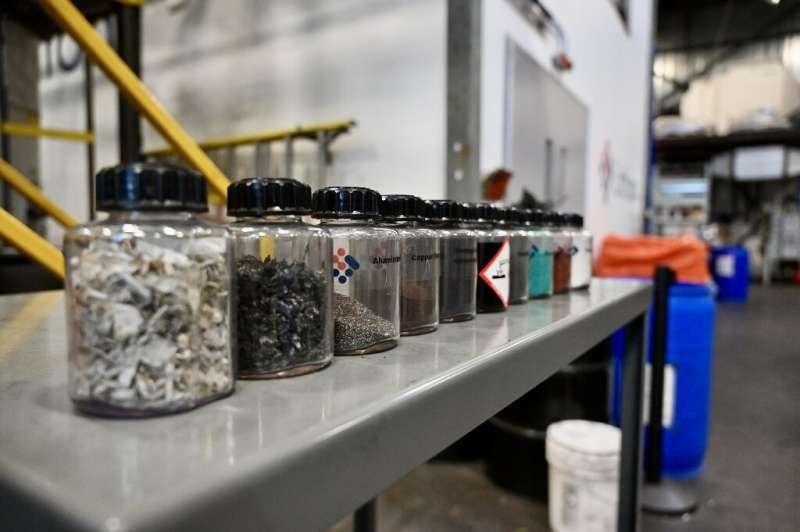Electric school buses are seen on the assembly line of the Lion Electric plant in Saint-Jérôme, Quebec, as Canada gears up for increased EV battery manufacturing.
As the world accelerates toward emissions-free driving, Canada is making a big push into batteries for electric vehicles—touting tax incentives, bountiful critical minerals and clean energy to attract multinationals.
Its efforts appear to be paying off with companies such as Volkswagen and Stellantis opening plants and more than Can$18 billion (US$13 billion) in investment attracted to the sector, which is emerging as second only to top battery manufacturer China.
This week Ottawa doubled down with the introduction of a 30 percent tax credit for new machinery and equipment used to manufacture clean technologies, and to mine or recycle cobalt, lithium, nickel and other critical minerals used in EV batteries.
"This is not just a new chapter. It's almost a new book we're writing on the automotive sector in Canada," Industry Minister Francois-Philippe Champagne said after announcing in early March that Volkswagen's first North American battery factory would be built in St. Thomas, Ontario.
The Germany-based auto giant is also the first new manufacturer to set up shop in Canada in 35 years.
Multinational automaker Stellantis and LG Energy Solution have also partnered on a new battery plant in Canada, while French tire manufacturer Michelin is expanding its local facility.
This handout picture provided by Sayona shows an aerial view of the company's lithium processing plant in La Corne, central Quebec.
And General Motors has signed a longterm agreement with Brazilian mining giant Vale for supplies of Canadian nickel for use in EV batteries.
"Canada has gone from fifth to second in the world in terms of our battery supply chain," Canadian Prime Minister Justin Trudeau boasted, referring to the latest ranking by research firm BloombergNEF, which placed the country just behind China.
Canada owes this position in part to its "large raw material resources and mining activity," says the report.
"Making the greenest vehicles in the world is really our intention to attract more investment," said Champagne, as the West seeks to bring back manufacturing lost in past decades to China, which now controls 75 percent of the world's production of advanced lithium-ion batteries.
Advantage Canada
Sarah Houde, of economic development agency Propulsion Quebec, said Canada is one of the world's only countries "that has all the minerals necessary for the production of batteries."
This handout picture provided by Sayona Quebec shows an employee in front of a lithium deposit at the company's lithium complex in La Corne, Quebec.
The relative proximity of its mines to battery factories and auto assembly plants in both Canada and the United States is also a plus.
"Being close to the major US market... is a key competitive advantage," said Brett Lynch, chief executive of Australian mining company Sayona, which has just started a lithium operation in Quebec.
According to the International Energy Agency, demand for essential minerals could quadruple or even increase sixfold by 2040.
Another reason, and "probably the most important," adds Lynch, lies in the province's abundant and cheap hydroelectricity.
"Nowhere else on this planet has such plentiful, cost-effective and low-polluting green energy," he says. According to government data, 99 percent of Quebec's energy is clean.
Battery recycling
Clean energy is also the cornerstone of Ottawa's climate plan, with incentives worth about Can$80 billion aimed at spurring investments in non-emitting electricity generation, green technologies and mining over the next decade.
Samples of rare minerals obtained by recycling used batteries are seen at Lithion's plant in Montreal, Quebec.
In particular it is pushing the recycling of electric batteries in order to create a circular supply chain.
Several factories are already in place in Canada and make it possible to recycle 95 percent of the strategic metals present in a battery while using "97 percent less water than extraction and refining per ton of battery material" and polluting less, says Louie Diaz of recycling company Li-Cycle.
Canada is also hoping to tap into some of the billions of dollars announced by Washington for electric vehicles, batteries and renewable energy projects.
Li-Cycle, for example, received in February US$375 million from the Pentagon.
Such investments are a reminder too that Canada will have to maintain a "sustained, accelerated pace," argues Houde, if it does not want to "get caught short of other countries."
© 2023 AFP


























